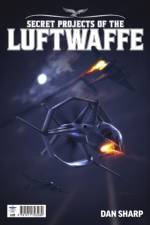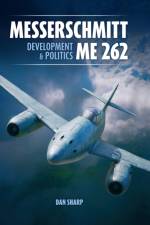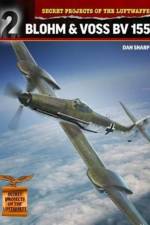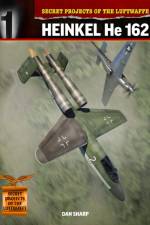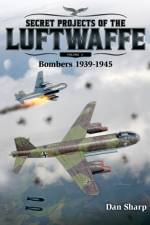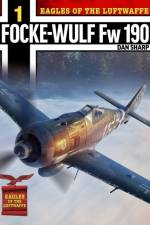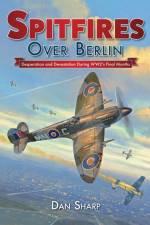Bøger af Dan Sharp
-
418,95 kr. The start of Space Shuttle operations in 1981 marked a new era in spaceflight - with the five orbiters launching numerous satellites, interplanetary probes and the Hubble Space Telescope. But Shuttle was only partially reusable, its external fuel tank being expendable and its solid rocket boosters having to be recovered from the ocean and refurbished. Putting a satellite into orbit using a rocket was even more wasteful - with boosters such as Ariane being one-shot only. The costs were literally astronomical. So when rocket scientist Alan Bond met propulsion and systems specialist Bob Parkinson at the British Interplanetary Society in 1982 during a lecture on Ariane 5, they got to talking about alternatives to the expendable rocket and concluded that the solution was... an aerospaceplane. The concept was deceptively simple - a vehicle able to take off from a conventional runway, fly up into space, complete its mission, then fly back down and land. Bond and Parkinson believed it could be done and HOTOL - HOrizontal Take-Off and Landing - was born. By 1985 both British Aerospace and Rolls-Royce were backing the project. A television news broadcast in 1987 made HOTOL famous overnight, with the whole nation now aware of its existence. The Government agreed to provide yet more financial backing and the work ramped up into high gear, with some of Britain's best engineers engaged in making this remarkable vehicle a reality. Just a year later, Minister of State of Trade and Industry Kenneth Clarke, under pressure from Margaret Thatcher, withdrew funding - signalling the beginning of the end of HOTOL. Decades later, Elon Musk and SpaceX would finally corner the market in reusable space transportation with the Falcon 9 and Falcon Heavy, putting an end to any hope of a HOTOL revival. HOTOL: Spaceplane of the Future by Dan Sharp covers the full story of HOTOL's development in detail from beginning to end drawing on both the BAE Systems archive and the personal archives of the project's creators. It includes hundreds of previously unseen diagrams and illustrations, ranging from full colour brochures and publicity material - both used and unused - to schematics of all of HOTOL's numerous configurations.
- Bog
- 418,95 kr.
-
101,95 kr. Updated to commemorate the 80th anniversary of the D-Day landings, D-Day: Operation Overlord and the Battle for Normandy, tells the full story of the invasion, with detailed accounts of each of the five landing zones on June 6, 1944, the airborne assault and the Normandy campaign that followed. It was the most ambitious military operation in history - the invasion of Nazi-occupied France by sea. A fleet larger than any ever seen before was assembled and launched under conditions of utmost secrecy to catch the defenders of Adolf Hitler's formidable Atlantic Wall by surprise.At H-Hour on D-Day, British, American and Canadian soldiers landed on beaches whose codenames have since become a byword for heroism - Sword, Juno, Gold, Omaha and Utah. Men waded ashore into a hail of machine gun fire and fought their way through a tangle of concrete bunkers and armoured emplacements. More ferocious combat followed as fanatical Waffen-SS divisions armed with terrifying new weapons such as the King Tiger tank battled to the death to contain the Allied advance.D-Day: Operation Overlord and the Battle for Normandy tells the story of the most important battle of the Second World War and remembers the men whose extraordinary courage and sacrifice brought about the liberation of Europe and put an end to Hitler's tyranny.
- Bog
- 101,95 kr.
-
124,95 kr. When it came to daring raids, Germany's airborne troops had a secret weapon during the Second World War: the DFS 230 combat and assault glider. Successful German attacks at Eben Emael, Corinth, Crete and Gran Sasso are synonymous with the type - which could carry nine fully-equipped troops, dive towards its target at an angle of 80 degrees and land within 20m of it.It was also frequently used for freight and could quietly deliver up to 1,200kg of cargo, even into areas considered too difficult and hazardous for successful supply drops by conventional means. For particularly difficult landing areas, it could optionally be fitted with up to three machine guns.Designed during the mid-1930s, the DFS 230 entered service in 1939 and was operated throughout the war in every theater where German forces were involved in the fighting. A DFS 230 was probably the last aircraft type to put down in the inferno of Hitler's encircled capital city just days prior to the dictator's suicide on April 30, 1945.The type could be towed into the air by almost any powered combat aircraft - from an He 111 bomber to a Bf 109 fighter - dropping its wheeled landing gear on take-off and touching down on a skid.More than 1,600 DFS 230s were built from 1939 to 1943 and up to a dozen are thought to survive today.In Eagles of the Luftwaffe: DFS 230, Luftwaffe historian Neil Page, author of the two-part Luftwaffe Fighters series from Tempest Books, explores and explains both the type's development and its service history.
- Bog
- 124,95 kr.
-
368,95 kr. Conceived as a multirole combat aircraft based on promising early data from pulsejet tests, the Me 328 was arguably Messerschmitt's most controversial wartime project. Early projects imagined the compact machine as a fighter, a bomber, a reconnaissance platform or even a parasite aircraft - detaching from large bombers in mid-air to conduct operations before returning to the mothership. Enthusiasm was high, prototypes were built and extensively flight tested, with and without pulsejets, but it soon became clear that the airframe, the pulsejets and even the operational procedures mapped out for the Me 328 were proving far more troublesome than anticipated.The type was canceled - but then revived with a darker purpose: as a suicide bomber. Famous test pilot Hanna Reitsch and her cadre of fanatics chose the Me 328 as their vehicle for 'self-sacrifice' missions, where idealistic young pilots, plied with drugs to remove their inhibitions, would fly the aircraft, laden with bombs, directly into high-value Allied targets such as warships, bridges or command posts.In Secret Projects of the Luftwaffe: Messerschmitt Me 328, German WW2 aircraft development specialist Dan Sharp presents the first ever book dedicated to the type and explores its history and purpose as far as surviving documentation allows.
- Bog
- 368,95 kr.
-
138,95 kr. Hundreds of thousands of classified documents were captured from Germany's aircraft manufacturers and aviation ministry at the end of the Second World War, including details of 'secret project' aircraft designs created by firms such as Focke-Wulf, Messerschmitt, Heinkel, Dornier and Blohm & Voss. Ongoing new research in archives around the world has revealed many previously unknown plans and proposals for aircraft that were radical, revolutionary or just plain weird. In this latest volume in his series on German wartime aircraft development, author Dan Sharp reveals a wealth of new discoveries - including never-before-seen drawings and designs. Secret Projects of the Luftwaffe examines Focke-Wulf's designs for enormous fighters built around bomber engines, aviation minister Erhard Milch's unusual rival to the Heinkel He 219 night fighter and Messerschmitt's alternative version of the push-pull twin engine Dornier Do 335. Also revealed are the long-buried secret history of the Blohm & Voss BV 40's repurposing as a suicide bomber, how an American-born car designer came up with the idea for Focke-Wulf's Ta 154 night fighter and the competition that would see Focke-Wulf, Dornier and Blohm & Voss go head-to-head with plans to design the Luftwaffe's last all-new piston engine fighter in 1944-45. Hundreds of original and previously unseen documents have been used to compile this unrivalled look at some of Germany's least-known Second World War project designs, featuring a host of period drawings and illustrations.
- Bog
- 138,95 kr.
-
383,95 kr. There are many myths surrounding the development of the Messerschmitt Me 262 jet fighter. Its unparalleled performance is beyond doubt; easily able to outpace its opponents and possessing the firepower to shred them in seconds.
- Bog
- 383,95 kr.
-
- Blohm & Voss BV 155
148,95 kr. Design and development of an extreme high-altitude fighter for the Luftwaffe during WW2.
- Bog
- 148,95 kr.
-
- Heinkel HE 162
148,95 kr. Dan Sharp analyses Germany's last-gasp WW2 Volksjäger jet fighter program.
- Bog
- 148,95 kr.
-
448,95 kr. - Bog
- 448,95 kr.
-
148,95 kr. Full profile of the legendary German Second World War fighter.
- Bog
- 148,95 kr.
-
283,95 kr. A selection of exciting, intriguing and thoroughly researched stories from the last days of WW2.
- Bog
- 283,95 kr.
-
- The RAF's F.155T/O.R. 329 Fighter Projects
298,95 kr. The West was stunned when the Soviet Union dropped its first atomic bomb in August 1949 and a year later the Korean War showcased Russia's incredible technological progress in the form of the MiG-15 - a fighter capable of besting anything the RAF had to offer at that time. In the wake of the Second World War, funding for the RAF's Fighter Command had fallen away dramatically but now there was an urgent need for new jet fighters to meet the threat of Russian bombers head-on. Britain's top aircraft manufacturers, including Hawker, English Electric, Fairey, Vickers Supermarine, De Havilland, Armstrong Whitworth and Saunders-Roe, set to work on designing powerful supersonic aircraft with all-new guided missile systems capable of meeting a Soviet assault and shooting down high-flying enemy aircraft before they could unleash a devastating nuclear firestorm on British soil.The result was some of the largest, heaviest and most powerful fighter designs the world had ever seen - and a heated debate about whether the behemoths should be built at all as guided weapons became ever more advanced. This is the story of Britain's secret cold war fighter jet designs, fully illustrated with a host of drawings, illustrations and photographs.
- Bog
- 298,95 kr.
-
- Bog
- 91,95 kr.





